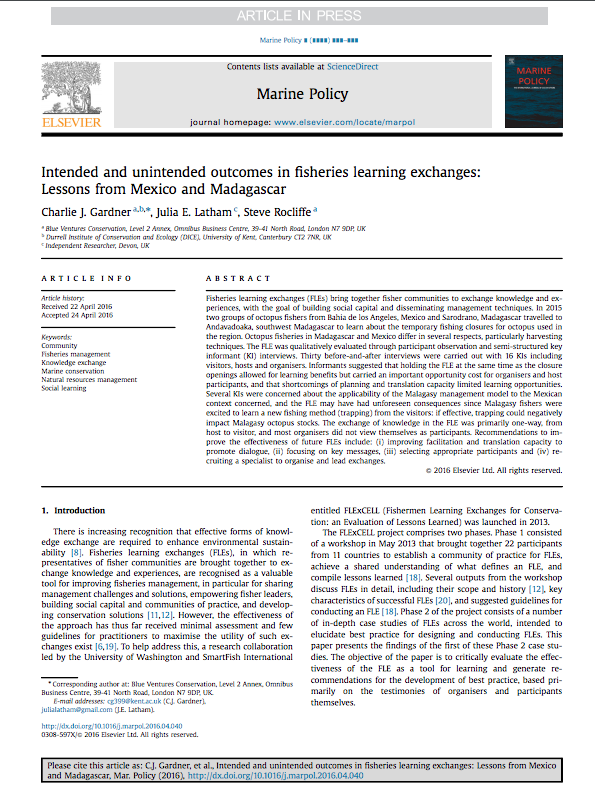Abstract
Fisheries learning exchanges (FLEs) bring together fisher communities to exchange knowledge and experiences, with the goal of building social capital and disseminating management techniques. In 2015 two groups of octopus fishers from Bahia de los Angeles, Mexico and Sarodrano, Madagascar travelled to Andavadoaka, southwest Madagascar to learn about the temporary fishing closures for octopus used in the region. Octopus fisheries in Madagascar and Mexico differ in several respects, particularly harvesting techniques. The FLE was qualitatively evaluated through participant observation and semi-structured key informant (KI) interviews. Thirty before-and-after interviews were carried out with 16 KIs including visitors, hosts and organisers. Informants suggested that holding the FLE at the same time as the closure openings allowed for learning benefits but carried an important opportunity cost for organisers and host participants, and that shortcomings of planning and translation capacity limited learning opportunities. Several KIs were concerned about the applicability of the Malagasy management model to the Mexican context concerned, and the FLE may have had unforeseen consequences since Malagasy fishers were excited to learn a new fishing method (trapping) from the visitors: if effective, trapping could negatively impact Malagasy octopus stocks. The exchange of knowledge in the FLE was primarily one-way, from host to visitor, and most organisers did not view themselves as participants. Recommendations to improve the effectiveness of future FLEs include: (i) improving facilitation and translation capacity to promote dialogue, (ii) focusing on key messages, (iii) selecting appropriate participants and (iv) recruiting a specialist to organise and lead exchanges.

















